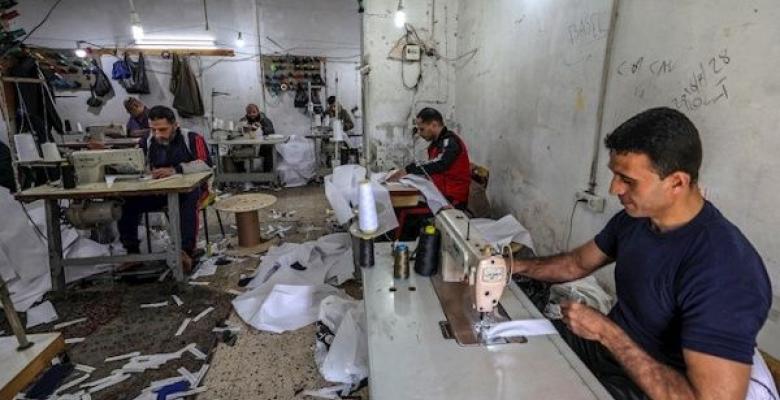Solidarity in the Age of Coronavirus: What the Arabs Must Do

The lack of collective Arab responsiveness is not unique as it mirrors Europe’s own systematic failure, exhibiting ‘solidarity’ when it is financially convenient, and turning its back, sometimes at its own brethren, when there are no economic incentives.
While the Coronavirus continues to ravage almost every nation on earth, Arab countries remain unable, or unwilling, to formulate a collective strategy to help the poorest and most vulnerable Arabs survive the deadly virus and its economic fallout.
Worse, amid growing international solidarity, we are yet to see a pan-Arab initiative that aims to provide material support to countries and regions that have been hit hardest by the COVID-19 disease.
The lack of collective Arab responsiveness is not unique as it mirrors Europe’s own systematic failure, exhibiting ‘solidarity’ when it is financially convenient, and turning its back, sometimes at its own brethren, when there are no economic incentives.
For example, when Greece defaulted on its debt to international donors in 2015, Germany, and other European Union countries, pounced on the opportunity to dismantle the country’s major financial institutions and to profit from Athens’ mounting miseries.
All the talk of European solidarity, fraternity and community floundered at the altar of greed and unhindered profits.
That was not the first - nor will it be the last - occasion when the opportunistic EU showed its true colors. In truth, Europe is united, not by common history or unbreakable social bonds, but rather by the shared belief that a united Europe is a stronger economic unit.
The same sordid scenario was recently repeated. As Italy began buckling down under the unbearable burdens of the deadly Coronavirus, it immediately, and naturally, sought the help of its European sister states. To no avail.
Despite its sizable debt, Italy is a major player in the economic arena of Europe and, in fact, the world. Indeed, Italy is the world’s 8th largest economy. But the country’s economy is now experiencing a rare freefall, especially in the poorer regions of the South, where people are literally going hungry.
The first country to come to Italy’s aid was neither France, nor, unsurprisingly, Germany, but China, followed by Russia, then Cuba, and others.
This palpable lack of solidarity among European countries has further empowered the ethnocentric view already prevailing in Europe, and championed by far-right movements like Italy’s League Party of Matteo Salvini. For years, the latter has advocated against European integration.
It will take months, if not years, for the political fallout of the Coronavirus to be fully assessed. But what is already clear is that international and regional economic hubs are actively hedging their bets to consolidate their geopolitical positions in the post-Coronavirus world.
Despite bashful American attempts to join the politically-motivated international solidarity, US President Donald Trump’s humble moves arrived too little, too late. In fact, a sign of the times is that Chinese and Russian aid is pouring in to help the United States, which now has the world’s largest number of COVID-19 cases.
A compelling question, however, is where are the Arabs in all of this?
Italy and Spain, in particular, share historical and cultural bonds, and broad political interests, with many Arab countries, interests that will remain long after the Coronavirus is eradicated. Failing to register on the radar of international solidarity with Italy and Spain will prove a strategic miscalculation.
Israel, on the other hand, is activating its aid agency, IsraAID, which has previously worked in Italy between 2016 and 2019, after a major earthquake killed nearly 300 people and left behind massive infrastructural damage.
Israel uses ‘humanitarian aid’ as a political and propaganda tool. Israeli missions are often under-funded and short-lasting, but their impact is greatly amplified by a powerful, official media machine that tries to project Israel as a ‘peace-maker’, not a war-monger.
The truth is, some Arab governments do, in fact, provide badly needed funds and aid to countries that are devastated by wars or natural disasters; alas, these efforts are often disorganized and self-centered - and frankly, not at all motivated by true solidarity.
That said, the absence of Arab initiatives in the field of international humanitarian solidarity dwarf in comparison to the lack of Arab solidarity within the Arab world itself.
According to United Nation estimates, there are “101.4 million (people) in the region who already live in poverty, according to official criteria, and around 52 million undernourished.”













Add new comment